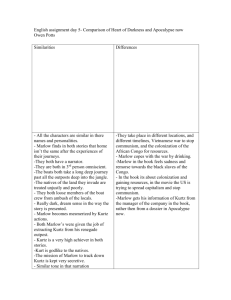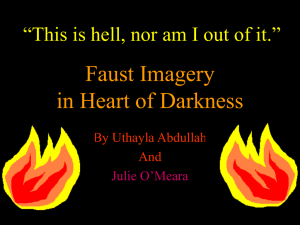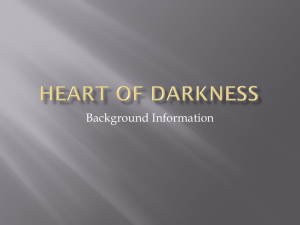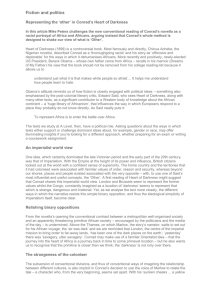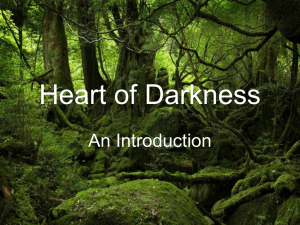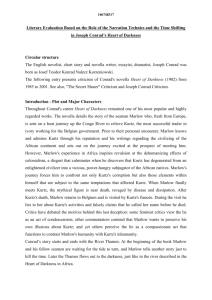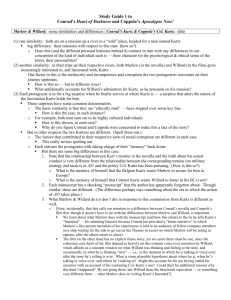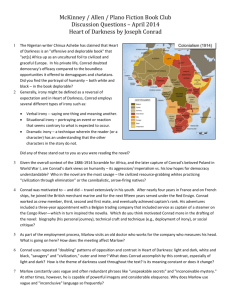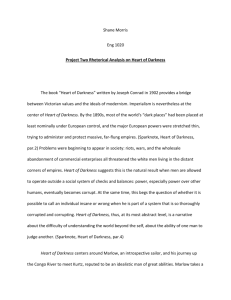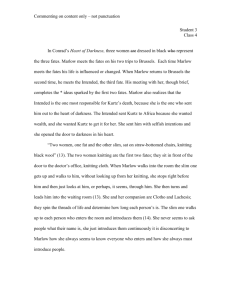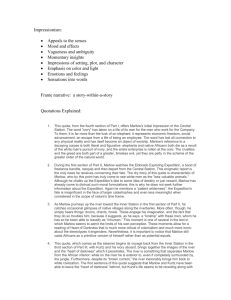11-6 Responses for Achebe Presentation
advertisement
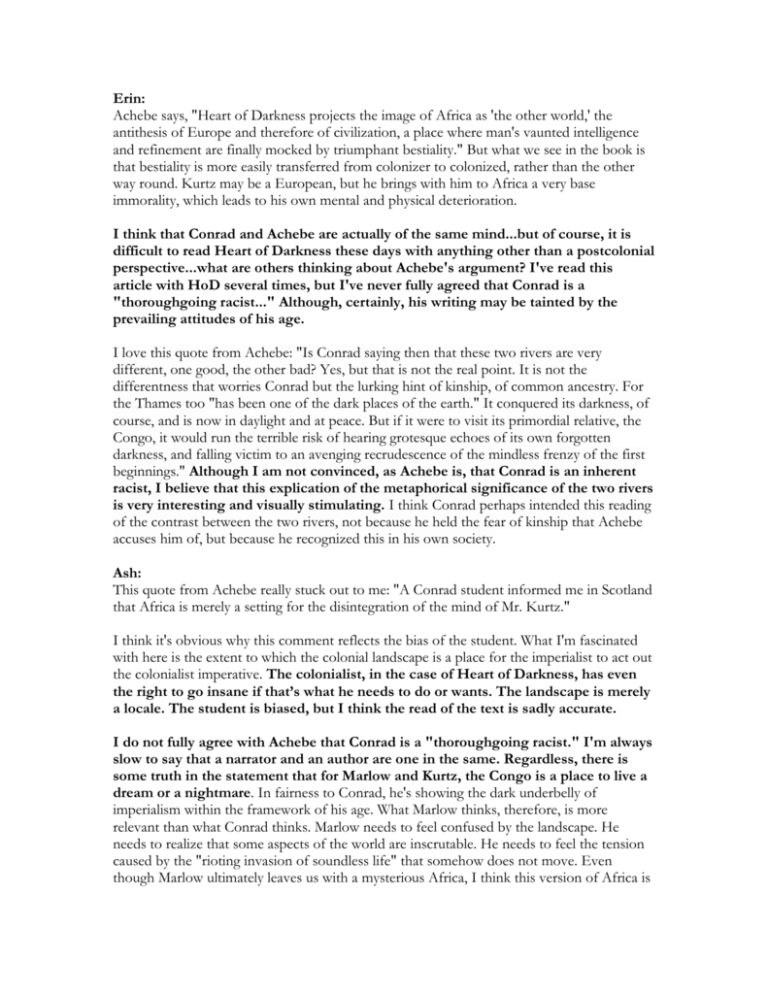
Erin: Achebe says, "Heart of Darkness projects the image of Africa as 'the other world,' the antithesis of Europe and therefore of civilization, a place where man's vaunted intelligence and refinement are finally mocked by triumphant bestiality." But what we see in the book is that bestiality is more easily transferred from colonizer to colonized, rather than the other way round. Kurtz may be a European, but he brings with him to Africa a very base immorality, which leads to his own mental and physical deterioration. I think that Conrad and Achebe are actually of the same mind...but of course, it is difficult to read Heart of Darkness these days with anything other than a postcolonial perspective...what are others thinking about Achebe's argument? I've read this article with HoD several times, but I've never fully agreed that Conrad is a "thoroughgoing racist..." Although, certainly, his writing may be tainted by the prevailing attitudes of his age. I love this quote from Achebe: "Is Conrad saying then that these two rivers are very different, one good, the other bad? Yes, but that is not the real point. It is not the differentness that worries Conrad but the lurking hint of kinship, of common ancestry. For the Thames too "has been one of the dark places of the earth." It conquered its darkness, of course, and is now in daylight and at peace. But if it were to visit its primordial relative, the Congo, it would run the terrible risk of hearing grotesque echoes of its own forgotten darkness, and falling victim to an avenging recrudescence of the mindless frenzy of the first beginnings." Although I am not convinced, as Achebe is, that Conrad is an inherent racist, I believe that this explication of the metaphorical significance of the two rivers is very interesting and visually stimulating. I think Conrad perhaps intended this reading of the contrast between the two rivers, not because he held the fear of kinship that Achebe accuses him of, but because he recognized this in his own society. Ash: This quote from Achebe really stuck out to me: "A Conrad student informed me in Scotland that Africa is merely a setting for the disintegration of the mind of Mr. Kurtz." I think it's obvious why this comment reflects the bias of the student. What I'm fascinated with here is the extent to which the colonial landscape is a place for the imperialist to act out the colonialist imperative. The colonialist, in the case of Heart of Darkness, has even the right to go insane if that’s what he needs to do or wants. The landscape is merely a locale. The student is biased, but I think the read of the text is sadly accurate. I do not fully agree with Achebe that Conrad is a "thoroughgoing racist." I'm always slow to say that a narrator and an author are one in the same. Regardless, there is some truth in the statement that for Marlow and Kurtz, the Congo is a place to live a dream or a nightmare. In fairness to Conrad, he's showing the dark underbelly of imperialism within the framework of his age. What Marlow thinks, therefore, is more relevant than what Conrad thinks. Marlow needs to feel confused by the landscape. He needs to realize that some aspects of the world are inscrutable. He needs to feel the tension caused by the "rioting invasion of soundless life" that somehow does not move. Even though Marlow ultimately leaves us with a mysterious Africa, I think this version of Africa is better and more realistic than the versions of Africa that is discreet and mappable, divided simply between European and savage. Kelly: What I this is important to discuss is Marlow’s fascination with Kurtz and how this relates to the ending of the text. It would seem that this fascination springs from the fact that Kurtz is the only person Marlow encounters who questions the system of imperialism, the “Empire”, and who is vocal about what he finds in Africa. Marlow doesn’t feel he can be vocal about what he sees and especially not about what he thinks about it. This readiness towards inaction is made all the more clear in Marlow’s encounter with Kurtz’s fiancé. When Marlow returns to Europe at the end of the text, he maintains the lie of imperialism in his encounter with Kurtz’s intended. Marlow tells her that Kurtz’s last words were her name. Marlow states that, “I could not tell her. It would have been too dark – too dark altogether” (77). Here, Marlow furthers the lie of imperialism and sustains the illusion of both “Empire” and Kurtz. Marlow hides the truth in order to preserve Kurtz’s memory but also to wash away the truth of what has been done, by both Kurtz and the “Empire”. In telling the truth, the idealistic view of the “civilizing mission” would unravel. Kurtz’s actual last words reveal the impact of imperialism and for that reason they must inevitably be concealed. Marlow, in the end, falls victim to the preservation of the illusion of the “civilizing mission”. Why do you think that Marlow decides to preserve this illusion of empire? Is it merely because he is a hypocrite? Could this ending add credence to Chinua Achebe’s assertion in “An Image of Africa” that Conrad is a racist?
